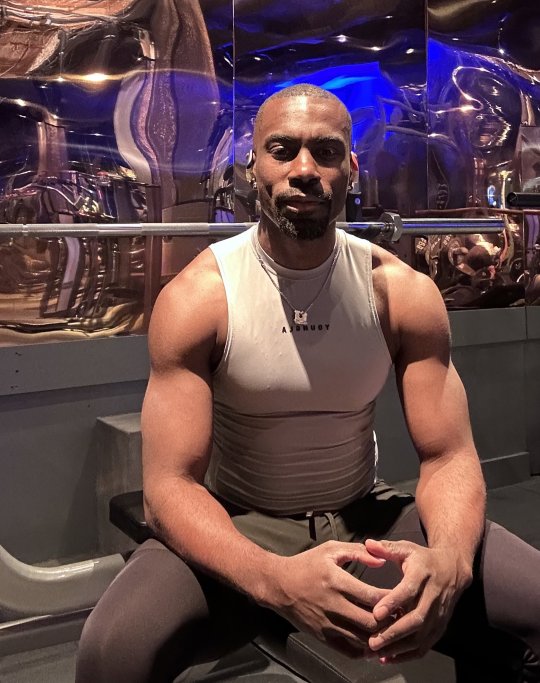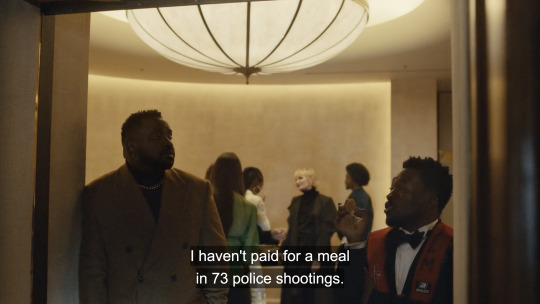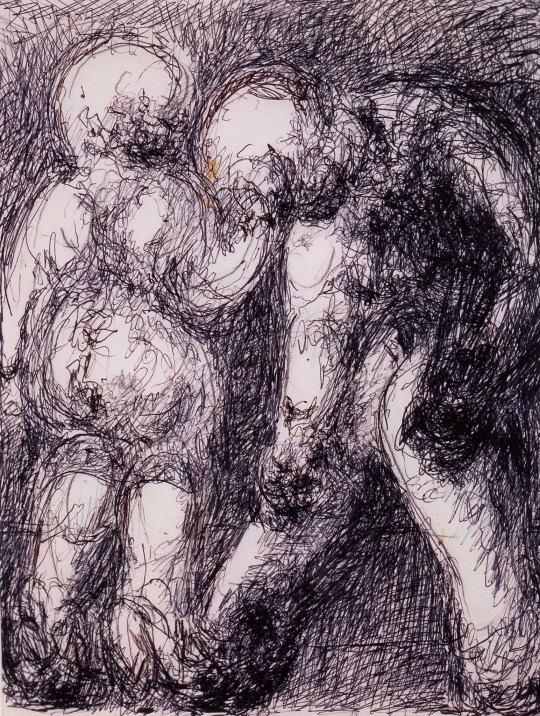#mckesson
Text
#holdblog#ópiátkrízis#matthew perry#jóbarátok#purdue pharma#oxycontin#fda#sackler#fentanil#janssen#johnson and johnson#duragesic#usa#kanada#good samarita overdose act#curtis wright#mckesson#cardinal health#amerisource bergen#walgreens#cws#insys therapeutics#john kapoor
8 notes
·
View notes
Text
Ian Millhiser at Vox:
The Supreme Court announced on Monday that it will not hear Mckesson v. Doe. The decision not to hear Mckesson leaves in place a lower court decision that effectively eliminated the right to organize a mass protest in the states of Louisiana, Mississippi, and Texas.
Under that lower court decision, a protest organizer faces potentially ruinous financial consequences if a single attendee at a mass protest commits an illegal act.
It is possible that this outcome will be temporary. The Court did not embrace the United States Court of Appeals for the Fifth Circuit’s decision attacking the First Amendment right to protest, but it did not reverse it either. That means that, at least for now, the Fifth Circuit’s decision is the law in much of the American South.
For the past several years, the Fifth Circuit has engaged in a crusade against DeRay Mckesson, a prominent figure within the Black Lives Matter movement who organized a protest near a Baton Rouge police station in 2016.
The facts of the Mckesson case are, unfortunately, quite tragic. Mckesson helped organize the Baton Rouge protest following the fatal police shooting of Alton Sterling. During that protest, an unknown individual threw a rock or similar object at a police officer, the plaintiff in the Mckesson case who is identified only as “Officer John Doe.” Sadly, the officer was struck in the face and, according to one court, suffered “injuries to his teeth, jaw, brain, and head.”
Everyone agrees that this rock was not thrown by Mckesson, however. And the Supreme Court held in NAACP v. Claiborne Hardware (1982) that protest leaders cannot be held liable for the violent actions of a protest participant, absent unusual circumstances that are not present in the Mckesson case — such as if Mckesson had “authorized, directed, or ratified” the decision to throw the rock.
Indeed, as Justice Sonia Sotomayor points out in a brief opinion accompanying the Court’s decision not to hear Mckesson, the Court recently reaffirmed the strong First Amendment protections enjoyed by people like Mckesson in Counterman v. Colorado (2023). That decision held that the First Amendment “precludes punishment” for inciting violent action “unless the speaker’s words were ‘intended’ (not just likely) to produce imminent disorder.”
The reason Claiborne protects protest organizers should be obvious. No one who organizes a mass event attended by thousands of people can possibly control the actions of all those attendees, regardless of whether the event is a political protest, a music concert, or the Super Bowl. So, if protest organizers can be sanctioned for the illegal action of any protest attendee, no one in their right mind would ever organize a political protest again.
Indeed, as Fifth Circuit Judge Don Willett, who dissented from his court’s Mckesson decision, warned in one of his dissents, his court’s decision would make protest organizers liable for “the unlawful acts of counter-protesters and agitators.” So, under the Fifth Circuit’s rule, a Ku Klux Klansman could sabotage the Black Lives Matter movement simply by showing up at its protests and throwing stones.
The Fifth Circuit’s Mckesson decision is obviously wrong
Like Mckesson, Claiborne involved a racial justice protest that included some violent participants. In the mid-1960s, the NAACP launched a boycott of white merchants in Claiborne County, Mississippi. At least according to the state supreme court, some participants in this boycott “engaged in acts of physical force and violence against the persons and property of certain customers and prospective customers” of these white businesses.
Indeed, one of the organizers of this boycott did far more to encourage violence than Mckesson is accused of in his case. Charles Evers, a local NAACP leader, allegedly said in a speech to boycott supporters that “if we catch any of you going in any of them racist stores, we’re gonna break your damn neck.”
With SCOTUS refusing to take up McKesson v. Doe, the 5th Circuit's insane anti-1st Amendment ruling that effectively bans mass protests remains in force for the 3 states covered in the 5th: Texas, Louisiana, and Mississippi.
#SCOTUS#Deray McKesson#Protests#Black Lives Matter#5th Circuit Court#Texas#Louisiana#Mississippi#1st Amendment#Counterman v. Colorado#NAACP v. Claiborne Hardware#McKesson v. Doe
218 notes
·
View notes
Text









Deray McKesson
25 notes
·
View notes
Text
A Rant about TVTropes and Theresa
Does something ever irk you so much that you feel like you need to vent it out to the worldwide internet? Because that's exactly what's happening to me. I don't even know why. I can just look away, but it just irks me. Keep in mind this is the dumbest rant I've ever considered writing, but it makes me feel better so here goes:
Everyone knows Empress Theresa is a really bad book, right? Theresa is a terrible character and a massive narcissist like her creator. There is a chapter where she cruelly torments 9 lawyers, including a single mother of 2, until they withdraw a lawsuit against her.
What irks me is that whoever wrote the TV Tropes page about Empress Theresa (in addition to its mention in the Karmic Overkill trope article) got some details wrong about this chapter.
In the book Empress Theresa, the following is said in Chapter 17:
"The reality hit [Connie McKesson]. Any vehicle she entered would not move. I wasn’t going to allow her to go anywhere except on foot."
"I zeroed in on the Lamper Building and found the eight lawyers...I found them, and Steve ’tagged’ them with T’s, and ’hit’ them with X’s...When they left the building to go home they found out one by one that no vehicle would move with their butts inside. They were forced to walk to a nearby hotel."
So she curses Connie McKesson and 8 other lawyers and makes it so they can't use vehicles. What happens after they withdraw their lawsuit?
"I took the X’s off the nine strips of mat board and the nine lawyers could use vehicles."
So after the lawsuit is withdrawn, Theresa lifts the curse on all of them. Now how does TV Tropes describe this event?
According to the Empress Theresa page:
"Theresa instead sabotages the life of the lawyer and makes it so any motor vehicle with her inside will inexplicably stall and fail...Theresa never reverses this either, so this is presumably just something this woman has to live with forever now,"
And according to the Karmic Overkill page:
"Theresa responds by putting what's effectively a curse on the lawyer who took the case, making it so that any motor vehicle with her inside will inexplicably stall and fail...And since there's no indication that Theresa ever reverses what she did, the poor woman presumably has to deal with this problem for the rest of her life."
According to TV Tropes, Theresa curses only one lawyer and never removes the curse even after she withdraws the lawsuit. This is wildly different from the source material, where Theresa curses nine lawyers and reverses it for all of them when they withdraw their suit. I am unsure what version of the book the person(s?) who wrote these passages read, or if there even are any other versions of the book out there, but it sure as Hell isn't the version I'm reading.
I really don't know why this annoys me enough to write such a long post about it, but it just...does.
#tv tropes#empress theresa#yeah i read empress theresa lol#connie mckesson#pls fix this tv tropes#not to mention iirc the first draft file leaked and Theresa lifts the curse in that version too#which leads me to believe tv tropes is just pulling a more horrific fanfic out of its ass
7 notes
·
View notes
Text
2 notes
·
View notes
Text

#atlanta#atlanta fx#donald glover#earn marks#bryan tyree henry#paper boi#season 3#fx#television#white fashion#s3e6#deray mckesson#blm#black lives matter#grifting#police#abolition
17 notes
·
View notes
Text

Diaper Review
This is going to be a short review. When I first started incorporating diapers into my age regression, I got a pack of these. They were scratchy, uncomfortable, and barely hold any liquid whatsoever. I did not buy them again, and probably never will. I bought these in person, and am not sure where you would buy them online.
#💚 smol gear review#💚 diap talk#💚 my diap#medical diaper#mckesson breifs ultra#sfw padded agere#sfw agere#sfw adult diaper#adult diaper#sfw diaper wearing
4 notes
·
View notes
Text
Hey just as a heads up if anyone here is on Spironolactone or knows anyone taking it, it appears there's a shortage of it and is on a long-term backorder due to... Various reasons. Other manufacturers seem to be picking up making it and should hopefully see a recovery in February, but you may have a difficult time getting it throughout January.
I can't find any articles on it, I found out by trying to order it for my own pharmacy and found it out via our supplier (McKesson). If your pharmacies use a different supplier, it may be easier to get, but most pharmacies use this supplier. I will update this post once we start to see a recovery!
#my pharmacy was completely outta 50mg so icwent to order some more and McKesson was like#its fucking nothing! :)
2 notes
·
View notes
Text
ZIWE SESSON 3
youtube
NOVEMBER 18TH !!!
#ziwe#bob the drag queen#michael che#julia fox#amber riley#blake griffin#deray McKesson#wayne brady#drew barrymore#THE SHOW OF THE YEAR IF NOT CENTURY#all hail queen ziwe#Youtube
3 notes
·
View notes
Text
Ian Millhiser at Vox:
The Supreme Court spent about an hour and a half on Tuesday morning arguing over whether to make it much harder for the Justice Department to prosecute hundreds of people who joined the January 6, 2021, attack on the US Capitol.
It appears, after Tuesday’s arguments, that a majority of the justices will side with the insurrectionists — though it is far from clear how those justices will justify such an outcome.
The case, known as Fischer v. United States, involved a federal law which provides that anyone who “obstructs, influences, or impedes any official proceeding, or attempts to do so” commits a very serious federal felony and can be imprisoned for up to 20 years — although, as Solicitor General Elizabeth Prelogar pointed out during Tuesday’s argument, actual sentences against January 6 defendants convicted under this statute have been much shorter, normally ranging from a little less than one year to slightly over two years.
According to the Justice Department, more than 1,265 people have been arrested for playing some role in the attack on the Capitol. Approximately 330 of them have been charged under the obstruction statute at issue in Fischer. One of them is Donald Trump.
As a federal appeals court held in its decision in this case, the obstruction statute is pretty darn clear that it applies to an effort to obstruct any congressional proceeding intended to certify the result of a presidential election — like the proceeding that the January 6 rioters attacked. And very few of the justices seemed to agree with Jeffrey Green, the lawyer representing a January 6 defendant, who proposed one way to read the statute more narrowly.
Nevertheless, many of the justices expressed concerns that the law sweeps too broadly and that it must be narrowed to prevent people who engage in relatively benign activity from being prosecuted.
Justice Samuel Alito, for example, expressed uncharacteristic sympathy for hecklers who interrupt a Supreme Court hearing — suggesting that prosecuting them under a statute that can carry a 20-year sentence goes too far. Justice Neil Gorsuch expressed similar concerns about prosecuting someone who peacefully conducts a sit-in to delay a court hearing, or someone who pulls a fire alarm to disrupt an official proceeding.
Indeed, Tuesday’s argument had a bit of a split personality. During Green’s time at the podium, most of the justices took turns criticizing his attempts to read the ban on obstructing an official proceeding narrowly. Even Alito, who is normally the Court’s most reliable vote for any outcome preferred by the Republican Party, got in on the game — telling Green that he “may be biting off more than [he] can chew” by arguing that the statute must be read to benefit his client.
By the time Green sat down, it appeared that he could lose in a 9–0 decision.
But any optimism that the Justice Department might have had early on in the argument must have been shattered almost as soon as Prelogar began her argument. Most of the justices peppered her with skeptical questions, although the justices who seemed to want to limit the obstruction statute struggled to agree on a single legal theory that would allow them to do so.
So the bottom line is that this case is probably going to end well for many January 6 defendants, but it is far from clear how the Court will justify such an outcome.
[...]
The Court’s sympathy for political protesters appears to be quite selective
Much of the skepticism Prelogar faced seemed to be rooted in some of the justices’ fears that ordinary political protests may be squelched by an overbroad reading of the obstruction statute. So it is worth noting another decision that the Court handed down just one day before the argument in Fischer.
In Mckesson v. Doe, the right-wing United States Court of Appeals for the Fifth Circuit effectively eliminated the right to organize a political protest — holding that protest leaders could face ruinous financial liability if a single protest attendee commits an illegal act. This decision is completely at odds with a long line of the Supreme Court’s First Amendment precedents.
And yet, on Monday, the Court announced that it would not hear the Mckesson case, leaving the Fifth Circuit’s decision in place.
It is still possible that the Supreme Court will correct the Fifth Circuit’s error in Mckesson at some later date. But it’s notable that the Court felt no urgency to do so in that case, while it spent the Fischer argument thinking about how to shut down some hypothetical future case where the government may not show adequate respect for First Amendment rights.
The Mckesson case, moreover, involved a Black Lives Matter protest, while the Fischer case involved a pro-Trump insurrection.
If nothing else, this is a terrible look for the Supreme Court. And it suggests that many of the justices’ concerns about free speech depend on whether they agree with the political views of the speaker.
Based on the oral arguments heard in the Fischer v. United States case at SCOTUS, the right-wing majority on the court is likely to side with Capitol Insurrectionists charged with obstructing an official proceeding.
Combined with this and the refusal to take up McKesson v. Doe, SCOTUS is in the tank for sympathies for right-wing protesters.
See Also:
HuffPost: Supreme Court Conservatives Appear Skeptical Of The Law Used To Charge Hundreds Of Jan. 6 Insurrectionists
#SCOTUS#Capitol Insurrection#Fischer v. United States#Donald Trump#US Department of Justice#Elizabeth Prelogar#Jeffrey Green#Joseph Fischer#McKesson v. Doe
11 notes
·
View notes
Text
0 notes
Text
Short Story: How You Have Fallen From Heaven
God sat upon His throne, worrying for His world and His children. Man had seemed to have gone completely mad. The Lord was used to witnessing people masquerade as gods, but no mortal had ever done it so well that they managed to completely bend His world to their will. It was messing everything up and He had a problem with that, so He decided after much deliberation to call forth the Second Coming a little early.
A few minutes later, a girl who looked to be in her late teens walked into His throne room, mystified by its magnificence. God knew this girl very well. His eyes lit right up and His mouth contorted into a wide grin.
"Well, well, well! If it isn't Empress Theresa." God said.
"Is this Heaven?" asked the girl.
"Indeed it is!" He replied, "But first, I must judge you."
"But-" Theresa protested.
The Lord reassured her, "Worry not, Theresa. I know of your deeds. It is just that all new arrivals here are judged. No exception."
God pointed towards a door on one end of the room as His smile grew wider.
"Behold, the prosecution! Come forth, Ms. McKesson."
Theresa’s eyes widened as she began to hyperventilate. Out came that lawyer, the one who filed a lawsuit against Theresa, only to be ruthlessly stalked and tormented by the Empress until she retracted it. The “grounding” may have ceased, but Connie McKesson never forgot what Theresa did to her. Now she was on the prosecution team of God Himself, ready to finally bring Theresa to justice.
"I've been building this case for years." McKesson laughed.
Theresa didn't stand a chance.
#empress theresa#empress theresa by norman boutin#i proclaim this 100% canon because fuck norman boutin#connie mckesson#shitpost#yeah i read empress theresa lol
5 notes
·
View notes
Text
youtube
Always remember Darren Seals.
#darren seals#blm#black lives matter#ferguson#deray mckesson#ferguson missouri#talib kweli#mike brown#activism#Youtube
0 notes
Text
Herodotus and the destruction of the Acropolis of Athens by the Persians
I reproduce below a video on Herodotus and the destruction of the Acropolis of Athens by the invading Persian army of Xerxes in 480 BCE, posted by Dutch scholar Janric van Rookhuijzen on the youtube channel of Herodotus Helpline. I will explain immediately afterwards why I find the video and the revisionist theories of van Rookhuijzen problematic. I will reproduce also in this post a text by an important American Classical archaeologist (John McKesson Camp), which summarizes the current consensus among scholars on the reality of the destruction of the Acropolis by Xerxes.
youtube
Now, my remarks on van Rookhuijzen's video:
In this video van Rookhuijzen essentially dismisses gratuitously all the ancient Greek sources about the destruction of the Acropolis of Athens by Xerxes.
He also essentially and equally gratuitously dismisses the academic consensus which prevails today among historians and archaeologists about the reality of the destruction of the Acropolis by the Persians, with as main argument that this consensus would be just a product of the influence of Herodotus, of Eurocentric ideology and of Orientalism, an argument which is very weak and in fact itself very ideological.
The truth is that van Rookhuijzen has more generally his own idiosyncratic revisionist theories on the Acropolis that almost none other scholar shares, for instance that what we know as the Parthenon and the Erechtheion ....are not the real Parthenon and Erechtheion!
Moreover, obviously he does not have much sympathy for the struggles of the Greeks for independence and liberation of their land from the foreign yoke (that he sees in outrageous way as "Greek conquests of Turkish and Bulgarian territories"!) or for philhellenism.
(Btw a person posted some days ago on this site the same video, with the comment that they would have learned from it "how german racist nationalism in archaeology influenced greek racist nationalism using Herodotus"! This is a very stupid comment and shows serious deficiency of historical knowledge from the part of the person who made it- moreover, it exaggerates grossly what even van Rookhuijzen claims. Really, since when "Greek racist nationalism" would be something comparable to the very real German racist nationalism, which caused two world wars, genocides, and immense suffering in humanity? I would add for the sake of the historical education of the person that made this comment that the Greeks paid a very heavy price for their resistance to German racist nationalism in its most extreme form -nazism- in WW II).
To clarify my position, I don't deny that the destruction of the Acropolis by Xerxes, an event with a very serious impact on the collective memory and identity of the Athenians and more generally of the ancient Greeks, has been used ideologially in modern times to justify theories about the inherent barbaric character of the East and the unescapable character of the conflict of the West with it, in a historical period of domination of the world by Western colonialism. But historical events are open to different evaluations of their significance in the more general historical process and, if we disagree with a given evaluation or exploitation of an event, it would be totally erroneous to deny the very reality of this event, if there are good reasons to accept it as real, as it is the case with the dectruction of the Acropolis by Xerxes. To put it differently, if we want to reject the exploitation in the past of the destruction of the Acropolis by Xerxes' Persians in the service of theories about the inevitable eternal conflict between East and West and about the inherently despotic and barbaric character of the East, it would be totally unnecessary and wrong to try to deny against the academic consensus and practically with no solid argument the very reality of this destruction. We cannot accept or refuse the historicity of events according to our more general ideological and philosophical positions, even if our positions and intentions are the best, although of course we can refute particular evaluations and interpretations of the same events. On the other hand, it is obvious to me that the replacement of Eurocentric views of the past with views idealizing the empires of the East like the Achaemenid Persian Empire and denying the historical importance of the fight of the Greek city-states to maintain their freedom face to the Achaemenid imperial expansionism, as it is fashionable today to see things in some quarters, would not be a progress.
I add that, if it is true that the argument of the struggle against Oriental despotism has been used often by Greeks and philellenes to gather support for the Greek War of Independence and the other wars of liberation fought by the Greeks, it is equally true that the Ottoman empire was really despotic and oppressive and often even barbaric towards the peoples conquered by it, especially when the latter revolted. Therefore, one should not confuse the use of this argument by Greeks and philellenes in the context of the Greek struggles for national liberation with the use of similar arguments about Oriental despotism in the service of the justification of the Western colonial expansion, as the contexts of these uses were very different.
And now I will reproduce the first paragraphs of a text by John McKesson Camp, Director of the Athenian Agora Excavations at the American School of Classical Studies at Athens and the Stavros Niarchos Foundation Professor of Classics at Randolph-Macon College, to show what is the current scholarly consensus about the reliability of the ancient Greek sources concerning the destruction of the Acropolis of Athens by Xerxes (John McKesson Camp "The Persian Destruction of Athens. Sources and Archaeology", in the collective volume of S. Fachard-E.M. Harris (editors) The Destruction of Cities in the Ancient Greek World. Integrating the Archaeological and Literary Evidence, Cambridge University Press 2021, pp 70-84, text available in its entirety on https://newdiscoveries.sites.uu.nl/wp-content/uploads/sites/712/2022/04/The-Persian-Destruction-of-Athens.pdf ):
"DESTRUCTION
The Sources
The Persian sack of Athens in 480/479 B.C. is one of the landmarks both for Greek archaeology and the history of Athens. Thucydides and Herodotos are concise but absolutely unequivocal as to the damage done. Herodotos gives the more detailed account of the actual events, telling us that Xerxes, when he took the citadel: “plundered the temple and burned the entire acropolis” (8.53) and
when, ten months after the battle of Salamis, and having wintered in Thessaly, the Persian general Mardonios returned and occupied Athens and then withdrew to Plataia, he “first burnt Athens, and utterly overthrew and demolished whatever wall or house or temple was left standing” (9.13). Thucydides, setting the stage for his description of the Themistoklean wall writes: “For of the
encircling wall only small portions were left standing and most of the houses were in ruins, only a few remaining in which the chief men of the Persians had themselves taken quarters” (1.89). Diodoros Siculus gives the longest account of all, drawing on sources other than Herodotos or Thucydides. For the first attack, “Xerxes entered Attika and ravaged the countryside, and then he razed Athens to the ground and sent up in flames the temples of the gods. And while
the king was concerned with these affairs, his fleet sailed from Euboia to Attika, having sacked on the way both Euboia and the coast of Attika” (11.14). And for the second assault and occupation: “Mardonios was so angry with them that he ravaged the entire countryside, razed the city to the ground, and utterly destroyed the temples that were still standing” (11.28.6). So, there we have it. Athens was wiped off the map. The literary sources are clear and largely unanimous as to the extent of the destruction: total. The
primary question we are asked to consider is: “How reliable are the sources?” Our best way of checking is to turn to the archaeology.1
THE ARCHAEOLOGICAL EVIDENCE: ATHENS AND ATTIKA
When we consider the archaeology of Athens in the early fifth century B.C., we find ample evidence of Persian destruction. On the acropolis, the Old Temple of Athena – made of limestone, with marble trim and pedimental figures of a gigantomachy – was destroyed. So was the Older Parthenon, with its superstructure of marble, unfinished and under construction at the time. The Older Propylon which gave access to the sanctuary, and the Archaic
version of the Athena Nike temple were also destroyed. That is, all three Archaic temples dedicated to Athena and the gateway into the sanctuary were all destroyed in the first half of the fifth century B.C. Also ruined were several small limestone Doric buildings, decorated with pedimental sculpture, all recently restudied by N. Klein, and often referred to as “treasuries” because of their similarity to buildings at Olympia, Delphi, Delos, and perhaps Nemea.2
In addition to buildings, broken votive sculptures of korai and animals, marble perirrhanteria, inscribed bases, and shattered votive pottery were found in great numbers. Dozens of scholars of different disciplines – architecture, pottery, sculpture, stratigraphy, and epigraphy – have been over the evidence with a fine-toothed comb, and there are few if any dissenting voices expressing doubt that the acropolis fared as recorded in our sources. The evidence shows
that the buildings and sculptural monuments of the principal sanctuary of Athena were reduced to rubble, burned or broken, or both."
#herodotus#acropolis#persian wars#janrik van rookhuijzen#john mckesson camp#ancient greece#classical archaeology
1 note
·
View note

